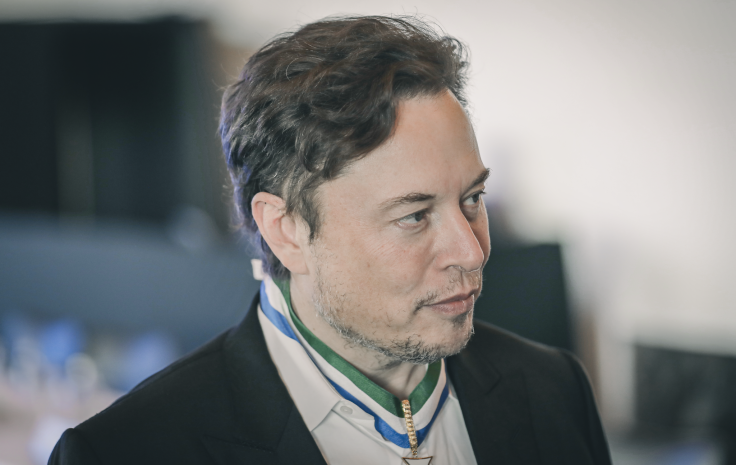Elon Musk's Goal Timelines Tend To Miss The Mark, Biographer Walter Isaacson Says
Walter Isaacson cited multiple examples of when Elon Musk was wrong about achieving his goals during a recent appearance on the "Diary of a CEO" podcast.

Walter Isaacson, who wrote a biography of Elon Musk, says the 52-year-old tech mogul has a tendency to misjudge how quickly he can achieve his goals.
Musk has a reputation for announcing deadlines for alleged developments in his companies and then failing to finish work on time.
Notably, he has failed to deliver on his promises several times. In fact, Facebook co-founder Dustin Moskovitz accused Musk of delaying the development of electric vehicles (EVs) by overpromising earlier this year.
On multiple occasions, Musk had hinted at the impending arrival of a particular feature in one of his products, but nothing came to fruition.
Now, American journalist and author Walter Isaacson, who wrote Musk's biography, says the X owner is "always wrong" about when he can achieve his goals.
Walter Isaacson on Elon Musk's predictions
Published by Simon & Schuster and penned by Walter Isaacson, Musk's biography was made available to the public in September this year. After following him closely for several years, Isaacson was able to share some aspects of the Tesla chief's life in the book.
Isaacson discussed Musk's plan to send humans to Mars during his recent appearance on the "Diary of a CEO" podcast. He noted that the X owner usually ends up overestimating his timelines for achieving goals.
Talking about how fast Musk thinks he can achieve his goal of having a colony on Mars, Isaacson said: "I think he wakes up all the time calculating that he's 52 or 53 years old and maybe he's got 30 years. Not that he necessarily wants to go to Mars, but he wants a mission to Mars."
While Musk believes this will happen within 10 years, the author noted that the billionaire is "always wrong by two or three times".
In addition to miscalculating how fast we will get to Mars, Isaacson pointed out that Musk has incorrectly predicted how fast self-driving cars will be available and how fast the Cybertruck will be made. "I think in 30 years, there'll be missions to Mars. In 10 years, it's unlikely," he added.
Elon Musk and his notorious promises
In 2015, Musk told Fortune that fully autonomous vehicles would hit the store shelves by about 2017. "We're going to end up with complete autonomy, and I think we will have complete autonomy in approximately two years," he said during the interview.
While Tesla launched its driver-assistance system called Autopilot in a software update in 2015, the full self-driving feature still requires human intervention. Autopilot only helps drivers change lanes, steer, parallel park and drive.
Last year, Musk's electric car company was sued for misleading the public by falsely advertising the company's Autopilot and Full Self-Driving features.
Moreover, Tesla recently recalled 2 million cars after the National Highway Traffic Safety Administration (NHTSA ) found the Autopilot system fails to prevent drivers from misusing it.
Although Musk gave us a glimpse into the prototype for Tesla's Cybertruck in 2019, its production was delayed several times. In a 2020 interview, Musk said the Cybertruck would start production the following year, but in 2021 he said it would be the following year. However, the Cybertruck didn't start deliveries until November 30 this year.
Musk's biography also highlights his leadership style, which primarily involves giving people a seemingly impossible deadline and making them chase it. In some cases, this tactic seemed to work for Musk and his companies.
For instance, Isaacson mentioned that SpaceX successfully launching a rocket into orbit, despite 3 huge failures, was definitely a historical win for Musk's astronautics company.
After the 3rd rocket failed, Musk reportedly gave his team barely 6 weeks to prepare a new rocket. This deadline was nearly impossible given that the team took about twelve months to make the 2nd rocket ready for launch after the 1st one exploded and seventeen months to prepare the 3rd one when the 2nd rocket failed.
The company's launch director Tim Buzza reportedly told Musk that they would need an Air Force plane to build a new rocket by that deadline and the billionaire replied: "Well, then, just do it."
"It was unlike anything that the bloated companies in the aerospace industry could possibly have imagined. Sometimes his insane deadlines make sense," Buzza told Isaacson.
© Copyright IBTimes 2025. All rights reserved.






















